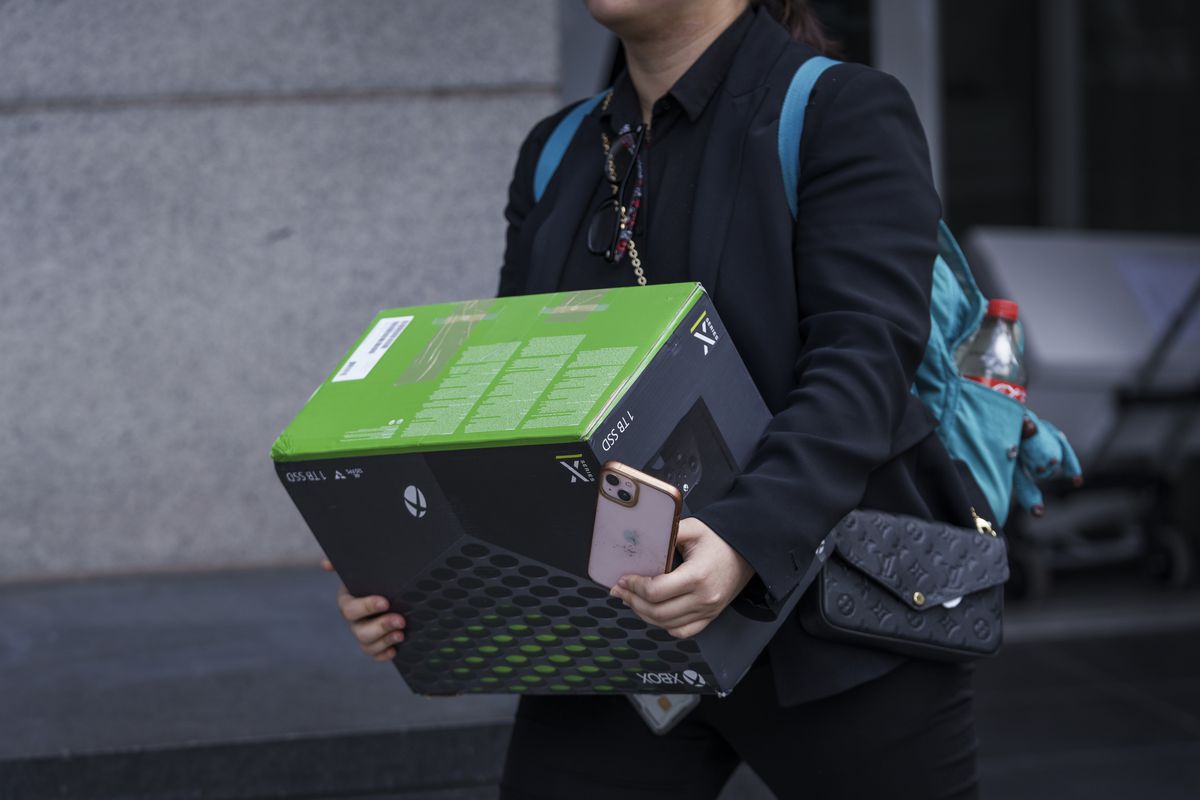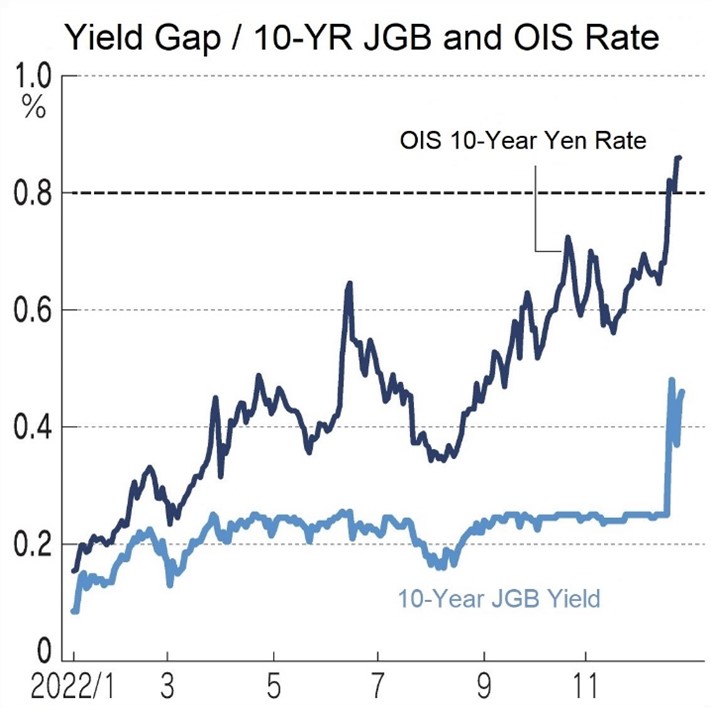FTC's Appeal Could Delay Or Block Microsoft-Activision Acquisition

Table of Contents
The FTC initially filed a lawsuit to block the merger, arguing that it would stifle competition. A judge ultimately dismissed the lawsuit, allowing the merger to proceed. However, the FTC's subsequent decision to appeal this ruling throws the future of the deal into considerable uncertainty. This appeal could significantly delay the acquisition, potentially lasting for months, or even years, and may ultimately lead to the merger being blocked entirely.
Understanding the FTC's Concerns Regarding the Microsoft-Activision Merger
The FTC's opposition to the Microsoft-Activision merger stems primarily from antitrust concerns. The agency fears that Microsoft's acquisition of Activision Blizzard, the creator of immensely popular franchises like Call of Duty, World of Warcraft, and Candy Crush, would give Microsoft an unfair competitive advantage, particularly in the console market. This concern is amplified by Microsoft's already significant presence with its Xbox consoles and gaming ecosystem.
The FTC's arguments center on several key points:
- Reduced competition in the console market: The FTC argues that Microsoft could leverage its ownership of Activision Blizzard titles, particularly Call of Duty, to make them exclusive to Xbox, thereby disadvantaging PlayStation and other competitors. This could limit consumer choice and potentially lead to higher prices.
- Potential for anti-competitive pricing practices: The merger could allow Microsoft to manipulate prices for Activision Blizzard games, potentially driving up costs for consumers or forcing competitors out of the market.
- Concerns about Microsoft's market dominance: The acquisition would further consolidate Microsoft's power within the gaming industry, giving them an outsized influence over game development, distribution, and pricing.
- Impact on game developers and publishers: Smaller game developers and publishers could face increased pressure from a more dominant Microsoft, potentially hindering innovation and reducing competition.
The Appeal Process and its Potential Timeline
The FTC's appeal will be heard by the Ninth Circuit Court of Appeals. This process can be lengthy and complex, potentially stretching from several months to several years. The timeline remains highly uncertain, creating significant anxiety for both Microsoft and Activision Blizzard. The outcome could dramatically shape the future of the gaming industry.
Several scenarios are possible:
- Appeal upheld, blocking the merger entirely: This outcome would be a significant victory for the FTC and could reshape the landscape of the gaming industry.
- Appeal partially upheld, leading to modifications of the merger agreement: The court might impose conditions on the merger, requiring Microsoft to make concessions to address the FTC's concerns. This could involve commitments to maintain Call of Duty's availability on other platforms.
- Appeal dismissed, allowing the merger to proceed: This would allow the acquisition to finalize, potentially triggering a new era in the gaming industry dominated by Microsoft’s increased influence.
Impact on the Gaming Industry if the Merger is Blocked or Delayed
A blocked or significantly delayed merger would have far-reaching consequences across the gaming industry:
- For Consumers: Higher game prices, reduced game availability (especially for exclusive titles), and potentially less innovation are all possible outcomes.
- For Game Developers and Publishers: Increased pressure from a dominant player and reduced opportunities for smaller developers are significant possibilities.
- For Competition: A blocked merger could preserve existing competitive dynamics, while a delayed merger creates uncertainty that hampers strategic planning for competitors.
Potential negative consequences include:
- Higher game prices for consumers: Reduced competition could lead to higher prices for popular titles.
- Reduced choice of games and platforms: Exclusivity deals could limit the availability of games on certain platforms.
- Shifts in market power among gaming companies: The competitive balance within the industry could be significantly altered, depending on the outcome.
- Impact on innovation and game development: A less competitive market may stifle innovation and reduce the diversity of gaming experiences.
Microsoft's Response and Potential Strategies
Microsoft has vigorously defended the merger, arguing that it will benefit gamers and enhance competition. Their response to the FTC's appeal will likely involve a multi-pronged strategy:
- Legal arguments and evidence presented in court: Microsoft will present a strong legal case to counter the FTC's arguments.
- Negotiations with the FTC to reach a settlement: Microsoft might attempt to negotiate concessions with the FTC to address some of its concerns and secure approval for the merger.
- Public relations efforts to influence public opinion: Microsoft may launch PR campaigns to highlight the benefits of the merger and mitigate negative perceptions.
Conclusion: The Future of the Microsoft-Activision Acquisition Remains Uncertain
The FTC's appeal significantly clouds the future of the Microsoft-Activision acquisition. While Microsoft argues the merger will bring benefits to consumers and foster innovation, the FTC expresses serious concerns about reduced competition and potential anti-competitive behavior. The outcome of the appeal remains uncertain, with potential consequences ranging from a complete block of the merger to modifications that might address the FTC's concerns. The impact on the gaming industry will be considerable, regardless of the outcome.
Stay informed about the FTC's appeal and its impact on the Microsoft-Activision acquisition. Follow this website for updates on this critical development in the gaming industry. Search for “FTC's appeal Microsoft-Activision” for more information.

Featured Posts
-
 E Ink Spectra
Apr 28, 2025
E Ink Spectra
Apr 28, 2025 -
 Martinsville Speedway Hamlins Triumph Ends Long Drought
Apr 28, 2025
Martinsville Speedway Hamlins Triumph Ends Long Drought
Apr 28, 2025 -
 Replacing Tyler O Neill Red Sox Roster Options For 2025
Apr 28, 2025
Replacing Tyler O Neill Red Sox Roster Options For 2025
Apr 28, 2025 -
 Reframing Chinoiserie A Feminist Perspective From The Metropolitan Museum Of Art
Apr 28, 2025
Reframing Chinoiserie A Feminist Perspective From The Metropolitan Museum Of Art
Apr 28, 2025 -
 Abu Dhabis 2024 Successes Record Investments Real Estate Growth And Ai Initiatives
Apr 28, 2025
Abu Dhabis 2024 Successes Record Investments Real Estate Growth And Ai Initiatives
Apr 28, 2025
